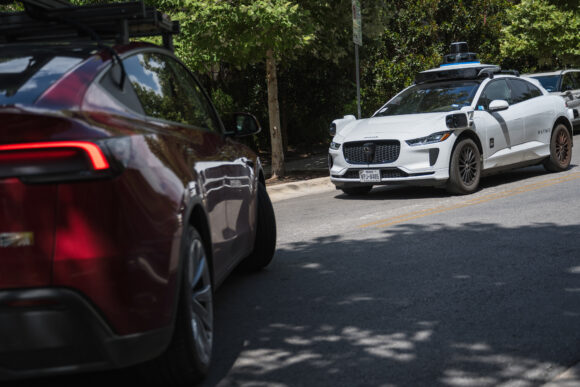The shift to autonomous vehicles represents a great unknown for the auto insurance industry, but to analysts at Bank of America Corp. it will be a potential goldmine.
Investors are concerned about liability when driverless cars become more mainstream. Under the current US system, the driver is responsible in the event of an accident. But with autonomous vehicles there is no driver, so liability will have to shift from personal to commercial carriers.
That could remove one of the “impediments to insurer profitability,” BofA analysts led by Joshua Shanker wrote in a note to clients Thursday. Auto insurers typically lose money on liability protection, so moving the onus to carmakers and software engineers would be financially beneficial.
“In theory, the personal lines industry might be pleased to offload some of the risks posed by the fickle US tort system,” the analysts wrote.
“Instead of bearing the risk of loss on their own balance sheets (and supplying the capital to support it), auto carriers would happily process claims and subrogate payments to newly liable commercial insurance parties,’ they added.
READ: Goldman Sees Autonomous Vehicles Transforming Insurance World
In addition, bears say that autonomous driving will reduce accidents caused by human error, driving down insurance costs and eating into insurers’ margins. However, the “data suggests otherwise,” according to BofA. Even as technological advances have seen the frequency of car accidents improve, the severity has increased at a pace exceeding any benefits from the reduction in incidents, the analysts wrote.
“Auto accident frequency has improved consistently for more than a hundred years, but, over the past 2-3 decades, despite myriads of safety innovations, the pace of improvement has notably slowed,” they wrote.
The impact of autonomous vehicles on the insurance industry has been widely discussed, particularly after high-profile deaths stemming from the technology. Meanwhile, driverless taxis from Tesla Inc. and Alphabet Inc.’s Waymo are becoming more prevalent.
In June, Goldman Sachs estimated the rise of self-driving cars could force a reconfiguration of the $400 billion US auto-insurance industry as accidents caused by human error decrease and costs are slashed.
Photo: A Waymo autonomous taxi, right, and a vehicle Tesla is using for robotaxi testing purposes in Austin, Texas, US, on Friday, June 20, 2025. Elon Musk said Tesla Inc. has set June 22 as a tentative launch date for the start of its robotaxi network.
Topics Carriers
Was this article valuable?
Here are more articles you may enjoy.



 Fla. Commissioner Offers Major Changes to Citizens’ Commercial Clearinghouse Plan
Fla. Commissioner Offers Major Changes to Citizens’ Commercial Clearinghouse Plan  AIG’s Zaffino: Outcomes From AI Use Went From ‘Aspirational’ to ‘Beyond Expectations’
AIG’s Zaffino: Outcomes From AI Use Went From ‘Aspirational’ to ‘Beyond Expectations’  Insurify Starts App With ChatGPT to Allow Consumers to Shop for Insurance
Insurify Starts App With ChatGPT to Allow Consumers to Shop for Insurance  Zurich Insurance Profit Beats Estimates as CEO Eyes Beazley
Zurich Insurance Profit Beats Estimates as CEO Eyes Beazley 

